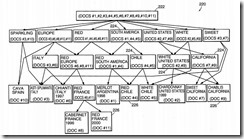Endeca: In the News Again. Remarkable
May 31, 2021
Endeca is the outfit which was among the first of the search vendors pushing the concept of “facets” and “guided navigation.” The technology dates from 1999. The company was interesting because it used some fancy marketing concepts to paper over the manual effort required to get the system to group content and display classifications; for example, provide an Endeca system with articles about Beaujolais and the system would put the content in the “wine” category. Believe me, people loved the idea that the system could index words and concepts. And the human part? Yeah, after signing the deal, there was among some customers more appreciation for the human word and the computational load the system imposed on computing resources. Like most of the search systems of that era, the company ended up selling itself to Oracle. Oracle had an appetite for search technology; for example, Applied Linguistics, Triple Hop, and RightNow (also acquired in 2011 when search was “hot”), among others.
Now Oracle Endeca is back in the news. Frankly I was surprised to read “Oracle Boasted That Its Software Was Used against US Protesters. Then It Took the Tech to China.” My first question was, “When did this alleged taking “tech to China occur?” The answer right after Oracle bought Endeca in 2011. Why was Endeca for sale? Not germane to the write up. I think the answer to this question is; specifically, Endeca hit a revenue glass ceiling. The Endeca method (disclosed in part in USpat7035864 filed in year 2000) required some technical cartwheels apart from the MBA consulting work. Here’s an example of the “work” required to crank out useful facets:
The computational hoo-hah is one reason Endeca chased and caught some cash from Intel. The idea was to use Intel’s whiz bang multi core chips to increase the content processing speed. New MBAs and subject matter experts were available, but chips and Intel super tech. Wowza!
Wrong.
The issue with Endeca’s method is suggested in this statement from the article I was surprised to read:
At the peak of the NATO protests, police reportedly used Endeca to process 20,000 tweets an hour.
Okay, 20,000. How many tweets were flying around in 2011? According to a Twitter blog post, in 2013 the volume of tweets was 500 million per day which works out to about 5,700 per second. Knock these number down by 20 percent, and you still get the idea of the gulf between the tweet flow of around 250,000 per minute. Throughput? Yeah, let’s talk about how much actionable information can be derived for a real time event when the processing will have a tough time catching up with the protest.
Rules based, ageing technology which computationally intensive and pivots on human data massaging is not going to do the job for enterprise search, policeware, or intelware applications. A small ecommerce site selling wine? Perfect. The Twitter fire hose or a more challenging task like E2EE messaging? Highly unlikely.
There were more promising solutions, and what’s interesting is that Oracle invested in one of them. You will have to do some work to discern the connection between Oracle’s Irish investment operation and a company allegedly headquartered in Manchester Square in London, but the links are there. That’s a more interesting China-Oracle connection, and it one more relevant to monitoring the actions of companies than the Endeca deal.
By the way, on Oracle’s watch Endeca became sort of a market intelligence and ecommerce offering, not a stellar tool for the often questioned In-Q-Tel operation.
The write up ends with this quote attributed to a wizard:
“It still boggles my mind.”
What boggles my mind is that Endeca is not a particular timely product. Even more baffling is how the write up missed other, more significant Oracle China connections. Maybe a “real” journalist will visit Manchester Square and check out what companies do business from that location. One of them might be Oracle maybe?
Why did Oracle pitch the Endeca tech to China? The company was trying to generate a sustainable, high dollar return from this horse in the Oracle search and content processing corral. Like RightNow, some of those horses do not look like potential Kentucky Derby winners.
Stephen E Arnold, May 31, 2021



